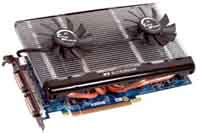 by congo » Sat Nov 20, 2004 12:03 pm
by congo » Sat Nov 20, 2004 12:03 pm
AMD CPU's are named after the Pentium CPU performance equivalency. (AMD don't claim this, but that's the way it is.)
So, an AMD XP3000+ is roughly equivalent in performance to an Intel P4 3000 hertz, (3.0 gigahertz), CPU.
AMD 64 bit CPU's use 64 bit technology as opposed to 32 bit, the current computing standard.
I don't think their is much of an advantage in the CPU power between, say, a 32 bit AMD 2800+ or it's 64 bit counterpart. The AMD naming convention takes the relative difference between the two technologies into account when they name the CPU. In fact, the 64 bit version is actually slower in it's frequency than a 32 bit equivalent.
AMD had difficulty raising the performance of their CPU's by using raw speed increases to their CPU's because of physical technological barriers. They simply hit a wall with the amount of layers of silicon they could use in their design. They instead used different technologies to improve the CPU's performance without having to ramp up the actual speed of the CPU.
Intel's CPU design was more readily adapted to raw speed increase and set the standard for CPU power by simply stating it's oscillation speed in hertz in it's naming convention.
Unfortunately for the end user, CPU naming is becoming more cryptic with the variety of CPU's now on offer. (A clear attempt to baffle us all with their technology! ;) )
The end result of all this is that it takes a geek's dedication to sort the whole mess out so we can make a valid and wise purchase decision. The "industry" relies on the ignorance of the masses to "flog off" all the cheaper and nastier variants of their products.
Let the buyer beware.
Last edited by
congo on Sat Nov 20, 2004 12:23 pm, edited 1 time in total.

Mainboard: Asus P5K-Premium, CPU=Intel E6850 @ x8x450fsb 3.6ghz, RAM: 4gb PC8500 Team Dark, Video: NV8800GT, HDD: 2x1Tb Samsung F3 RAID-0 + 1Tb F3, PSU: Antec 550 Basiq, OS: Win7x64, Display: 24&




 Mainboard: Asus P5K-Premium, CPU=Intel E6850 @ x8x450fsb 3.6ghz, RAM: 4gb PC8500 Team Dark, Video: NV8800GT, HDD: 2x1Tb Samsung F3 RAID-0 + 1Tb F3, PSU: Antec 550 Basiq, OS: Win7x64, Display: 24&
Mainboard: Asus P5K-Premium, CPU=Intel E6850 @ x8x450fsb 3.6ghz, RAM: 4gb PC8500 Team Dark, Video: NV8800GT, HDD: 2x1Tb Samsung F3 RAID-0 + 1Tb F3, PSU: Antec 550 Basiq, OS: Win7x64, Display: 24&




 Mainboard: Asus P5K-Premium, CPU=Intel E6850 @ x8x450fsb 3.6ghz, RAM: 4gb PC8500 Team Dark, Video: NV8800GT, HDD: 2x1Tb Samsung F3 RAID-0 + 1Tb F3, PSU: Antec 550 Basiq, OS: Win7x64, Display: 24&
Mainboard: Asus P5K-Premium, CPU=Intel E6850 @ x8x450fsb 3.6ghz, RAM: 4gb PC8500 Team Dark, Video: NV8800GT, HDD: 2x1Tb Samsung F3 RAID-0 + 1Tb F3, PSU: Antec 550 Basiq, OS: Win7x64, Display: 24&







